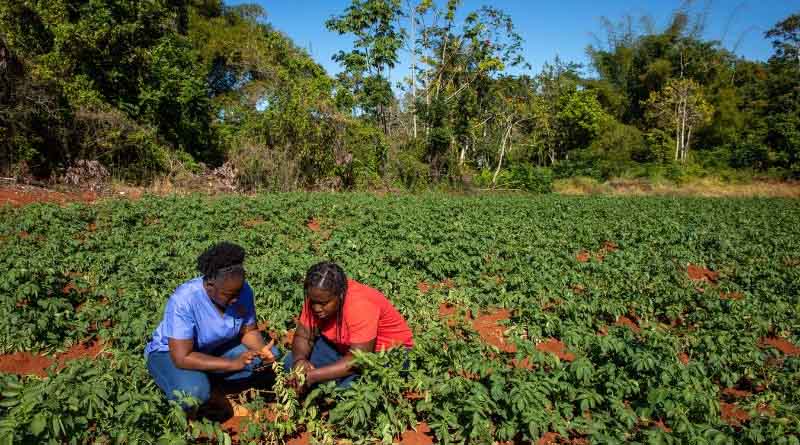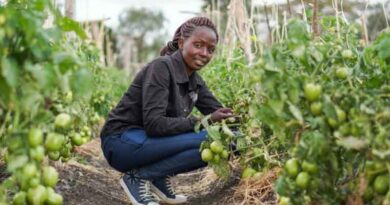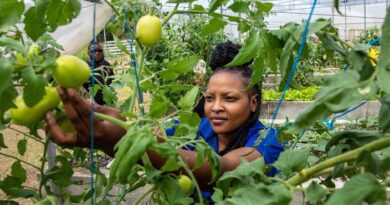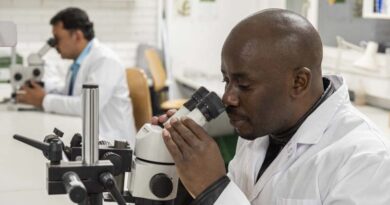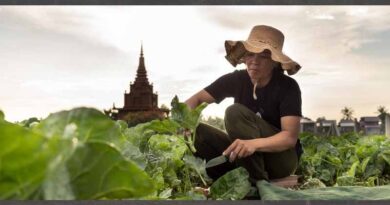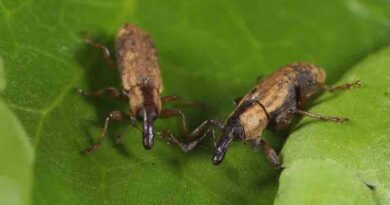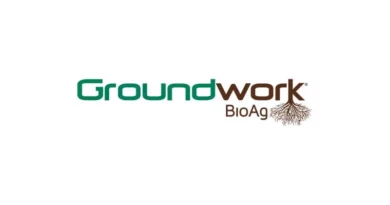Apply now: Online integrated crop management courses run by CABI and the University of Neuchâtel, Switzerland
16 May 2023, Switzerland: Integrated crop management combines local knowledge with new research and technologies. It provides a whole-farm approach that encompasses all of the relevant socio-economic and environmental factors.
Applications are now open for three separate Certificates of Advanced Studies (CAS) in Integrated Crop Management (ICM). CAS 1: ICM – Sustainable Production Practices, CAS 2: ICM – Aspects of Implementation and CAS 3: ICM – Biological Control and Ecosystem Services were all launched in 2022 and will be offered again starting in September 2023! The three online programmes are developed and run by CABI and the University of Neuchâtel in collaboration with partner institutions in Switzerland.
What is integrated crop management?
Integrated crop management is a sustainable agricultural production system that improves overall crop health with minimal impact on the environment. It optimizes yield and profitability and takes into consideration pest management, soil care, seed selection, crop nutrition, water management, rural economics, landscape management, agricultural policy and more. Integrated crop management is an important part of sustainable agriculture and these courses promote the adoption of sound crop management principles.
Who are the integrated crop management programmes for?
All three CAS-ICM programmes are valuable for scientists, teachers, extension officers, policymakers and post-graduate students. Participants should possess a Bachelor’s degree or at least three years of relevant professional experience in a related field and wish to enrich their integrated crop management knowledge. The topics addressed in these online, post-graduate courses are of global relevance and candidates are welcome from any country.
The learning is based on the proven content and approaches from previous educational activities and professional experience over the past several years.
The educational experience gained from these integrated crop management courses will facilitate the acquisition of positions in both the public and private sectors, including government, research, universities, advisory services, NGOs and industry.
CAS 1: ICM – Sustainable Production Practices
This programme will facilitate exchange between international participants as they explore and learn about technical solutions to current challenges in crop production. Participants will enhance their ability to address global issues related to agriculture such as food security, resource management and environmental change.
CAS 1 consists of seven topics:
| Topic 0 | Topic 1 | Topic 2 | Topic 3 | Topic 4 | Topic 5 | Topic 6 |
| Introduction | Soil Mgmt. | Crop Nutrition | Water Mgmt. | Seed / Planting Materials | Integrated Pest Mgmt. | Cropping Strategies |
The CAS 1 programme counts 12 credit points under the European Credit Transfer System (ECTS).
CAS 2: ICM – Aspects of Implementation
This programme will facilitate exchange between international participants as they explore diverse considerations that are important – but not always obvious – in the field of integrated crop management implementation. This programme addresses implementation issues that are crucial for the successful adoption of integrated crop management practices by farming communities and for sustainable food production.
CAS 2 consists of seven topics:
| Topic 1 | Topic 2 | Topic 3 | Topic 4 |
| Policy considerations | Agricultural System Implementation | Agricultural and Rural Economics | Agricultural Extension |
| Topic 5 | Topic 6 | Topic 7 |
| Gender in Agriculture Programmes & Rural Advisory Services | Experimental Design & Statistical Methods | Climate Change & Agriculture: Towards Climate-Smart Pest Management |
Students will learn how to address critical agricultural issues, in particular, recognising and dealing with obstacles and opportunities for ICM adoption in different agricultural systems.
The CAS 2 programme counts 10 credit points under the European Credit Transfer System (ECTS).
CAS 3 – Biological Control and Ecosystem Services
This programme closely examines ways to apply science-based practices that enhance, rather than degrade, ecosystem services. These services are crucial for healthy and productive agroecosystems. The course emphasises practices that promote biological control of plant pests while protecting vital species like pollinators.
CAS 3 consists of four topics:
| Topic 1 | Topic 2 | Topic 3 | Topic 4 |
| Prevention of Pest Problems | Green Direct Control | Classical Biological Control | Managing Landscapes |
Participants will acquire a broader and deeper understanding of the options available to minimise the use of chemical pesticides, promote biodiversity and create more resilient agroecosystems. Students’ enhanced capacity to analyse interactions of beneficial species (e.g. natural enemies, pollinators) in agricultural landscapes will better prepare them for promoting nature-based solutions in various agricultural systems.
The CAS 3 programme counts 10 credit points under the European Credit Transfer System (ECTS).
How are the integrated crop management courses run?
All three programmes are fully online and will run from September 2023 until June 2024. Students must be able to dedicate 10 hours of study time per week throughout this period.
Courses and materials are made available through the e-learning CABI Academy platform. The platform uses the well-known Moodle technology for online learning.
Participants who successfully finish all three CAS-ICM programmes can obtain a Diploma of Advanced Studies (DAS) upon completion of an additional technical report.
How do I apply?
For further information on the programme including how to apply, fees and scholarship opportunities, please visit the University of Neuchâtel website.
The deadline for applications is 2nd July 2023.
Also Read: Decrease in area under Summer Crops in the country; Paddy down by 6 percent
(For Latest Agriculture News & Updates, follow Krishak Jagat on Google News)

